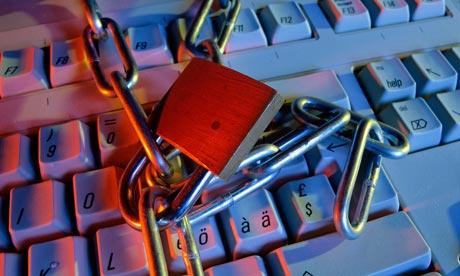Middle Eastern regimes continue to fight the internet
Authorities have been using a heavy hand when dealing with this medium and its users, using physical and technological means, saysTal Pavel
 Censorship, online attacks and internet shutdowns characterise some of the methods for oppressive regimes says Tal Pavel Photograph: mediacolor’s / Alamy/Alamy
Censorship, online attacks and internet shutdowns characterise some of the methods for oppressive regimes says Tal Pavel Photograph: mediacolor’s / Alamy/Alamy
The Internet, social networks and cellular Internet have been central tools in creating protest events and even in creating the revolutions which took place during the “Arab Spring”, which has been taking place in the Middle East since 2011. These were used for creating the online events, spreading their message, inviting the people, and afterwards also for documenting the demonstrations and clashes in the cities. Cell-phones were especially instrumental in written, photographed and even filmed reporting, which was quickly uploaded to the Internet and from there was spread to the rest of the world. Thanks to such on-site reporting, we were able to learn the truth about the lynching of Muammar Gaddafi.
In light of the Internet’s power as a medium for creating, forwarding and receiving information, while being even more available and accessible than the streets, it has become a great challenge to regimes, especially those centralized ones that exist in the Middle East.
Therefore, regimes in our region have been using a heavy hand when dealing with this medium and its users, using physical and technological means. At the beginning of December, it was reported that the Syrian government had banned the use of iPhones in the country, because of its capabilities which were deemed forbidden by the authorities. Possession of such appliances will lead to confiscation and to charges being pressed against the possessor. This is, most likely, another step in the Syrian regime’s battle against the protesters, which has also shown in the online arena. For this, Syria has taken a number of steps, among them:
Censorship of the Internet – the Syrian authorities have been working continuously to censor the Internet in the country, through the use of Western software, such as a program from the American company “Blue Coat“, which monitors Internet users’ online activity in Syria and blocks access to restricted sites.
Online attacks – this May, Syrian authoritiesattacked Facebook’s secure website. The attack which was used, was of the “Man-In-The-Middle” type, and allows the attacker to gain control over the user’s Facebook profile. There have also been reports of a “Syrian Electronic Army” which has presence on the Internet and the various social networks.
Shutting down the Internet – at the beginning of June this year, the Internet was almostcompletely blocked in the country for about a day.
Over the past few weeks there have been reports of restrictions on the use of various online services also in Morocco. In Skype’s support site, it was reported that the Moroccan communications company has been blocking Skype’s servers in the country, which has been preventing downloading of the program, entering the company’s website and even disrupting communications on it. One of the comments a week later said that from a diagnostic he had run, he suspects the service had been deliberately blocked:
“Strongly suspect deliberate blocking or interference of SKYPE packets”.
Similar messages were sent by other users in the country.
Also, it was reported at the end of November that the file-sharing website, Megaupload, had also been censored. The same report claimed that other services, such as Skype, YouTube and Paltalk were blocked in the country by Maroc Telecom, the largest communications provider in the country.
The new ban in Syria and the restrictions on online services in Morocco, serve as proof of the power of Internet, especially cellular Internet and of the authorities’ awareness of this power. According to predictions, the rate of penetration of cell-phones in the Middle East is expected to reach 108% by the end of 2012 (in contrast to 103% in North America).
These steps, taken by regimes in the Middle East illustrate the importance of the Internet as the ultimate communications device and of the will of the people to have free communications and access to information and creating change. These are ingredients that put the Internet and its users on a collision course with Middle Eastern regimes.
Content on this page is provided and controlled by PUBLICi.
Related
- 8 Jun 2012Surfing the web on an iPhone in Iran
- 8 Jun 2012Business as usual
- 8 Jun 2012The internet and mobile phones in the service of the revolution
- 19 Jun 2001Henman and Rusedski handed easy draws
Related information
Media Network – Partner zone PUBLICi
8 Jun 2012
In the West Bank and Gaza, certain websites are being blocked – does this constitute a restriction on the freedom of speech?
- 17 Jan 2011WikiLeaks turned the tables on governments, but the power relationship has not changed
- 16 Dec 1999Net gains
- 4 Dec 2000Rumours Unlimited
- 26 Jul 2000Britons prefer print as news medium
8 Jun 2012
PUBLICi is an online content distribution platform which enables a writer or a group of writers to create and operate their own online newspaper, fully-featured, at no cost
.








